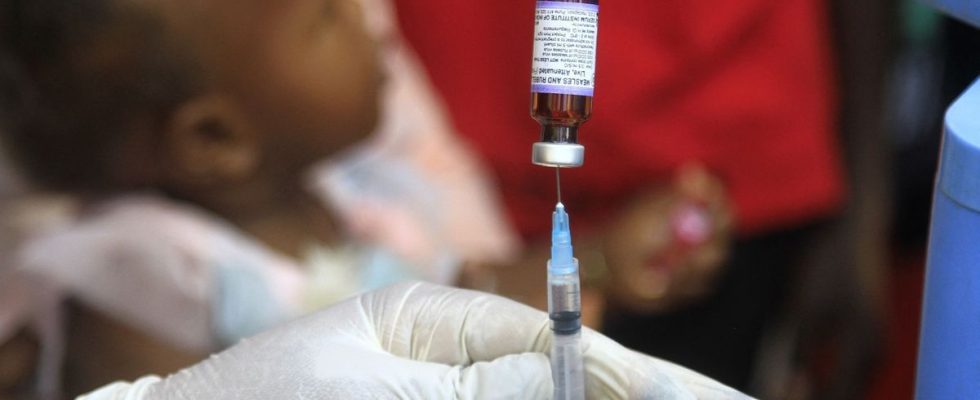Published on
Updated
Reading 2 min.
Vaccines have saved at least 154 million lives over the past 50 years, the equivalent of six lives every minute, according to a WHO study published Wednesday by the scientific journal The Lancet.
The World Health Organization emphasizes, in a press release, that this estimate is “cautious” because the study only concerns vaccination against 14 diseases, including diphtheria, hepatitis B, measles, whooping cough, tetanus or yellow fever.
“Vaccines are among the most powerful inventions in history, preventing once-feared diseases” WHO Director-General Dr. Tedros Adhanom Ghebreyesus said in the statement.
“Thanks to vaccination, more children have never been able to survive and develop beyond their fifth birthday than at any other time in history“, also commented the Executive Director of the United Nations Children’s Fund (UNICEF), Catherine Russell, in the same press release.
WHO, UNICEF, vaccine alliance Gavi and the Bill & Melinda Gates Foundation have unveiled the joint Humanly Possible campaign to support vaccination efforts.
Efforts which sometimes come up against very strong anti-vaccine sentiments fueled by conspiracy theories circulating on social networks.
The study shows that the vast majority of lives saved by vaccines over the past 50 years – 101 million – have been those of infants.
Thus, vaccination against the 14 diseases has directly contributed to reducing child mortality by 40% worldwide and by more than 50% in the African region, according to the WHO.
“Thanks to vaccines, smallpox has been eradicated, polio is on the verge of succumbing, and thanks to the recent development of vaccines against diseases like malaria and cervical cancer, we are pushing the boundaries of disease“, emphasized Dr. Tedros.
“By continuing research, investments and collaborations, we can save millions more lives today and in the next 50 years“, he also noted.
Measles
Among the vaccines included in the study, measles vaccination had the most significant impact on reducing child mortality, accounting for 60% of lives saved.
According to the WHO, this vaccine “will probably remain in the future the one that contributes the most to preventing deaths“.
Thanks to polio vaccination, more than 20 million people who would otherwise have been paralyzed can walk, the WHO also says.
Overall, the progress made in child survival thanks to vaccines highlights the importance of continuing these efforts, according to the UN agency.
In particular, it calls for accelerating efforts to reach the 67 million children who did not receive one or more vaccines during the years of the Covid-19 pandemic, during which health services were closed or severely disrupted.
The WHO is particularly concerned about measles.
Nearly 94 million of the 154 million lives saved since 1974 have been thanks to measles vaccines, of which two doses are required.
But 33 million children still missed a dose of measles vaccine in 2022: nearly 22 million missed their first dose and an additional 11 million missed their second dose.
However, coverage of 95% or more with 2 doses of vaccine is necessary to protect communities against epidemics.
Currently the global coverage rate of the first dose of measles vaccine is 83% and that of the second dose is 74%, contributing “to a very high number of measles epidemics” across the world, he said. worries the WHO.
